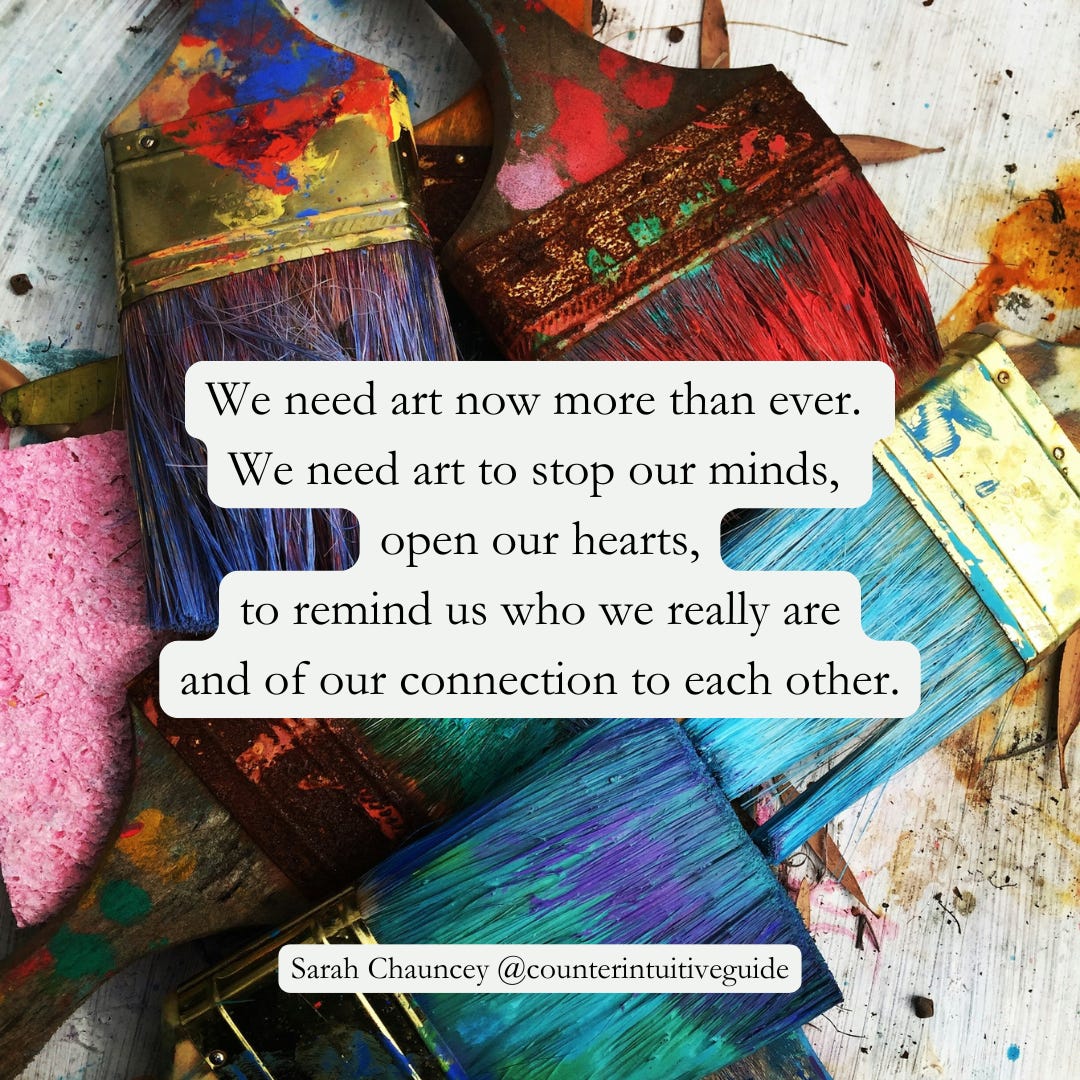I saw a meme a few days ago that said, “It’s been a long year this week.” Sure feels that way, doesn’t it? It’s totally fine if you need to take some time away from writing to process your emotions and regroup. But for the love of all things First Amendment, please don’t let current events stop you from writing for the next several years.
How to write in a time of cultural chaos
First, the how: take care of yourself. Writing is a form of energy, and if you write from a place of hostility and rage, that will only embed those feelings more deeply in you and in the reader—no matter how gentle the language you use.
Over the weekend, I sent a Counterintuitive Guide to Life newsletter called “How to be an Effective Force for Good, part 1” The central idea is to find a way to become grounded before you take action… in this case, before you sit down to write. Which is similar to this post I wrote for Jane Friedman’s blog a year ago.
(Expressive writing is an excellent way to process feelings—I do it every day—but in this newsletter, I’m talking about creative writing.)
Reasons to Keep Writing
While many creatives feel paralyzed right now, we need art—including all forms of writing— now more than ever. I wrote the observation below in 2014, and it’s become more relevant with each passing year.

Reason #1: The world needs your stories
Those of you who have worked with me know my refrain: “Readers don’t want to watch you have an experience; they want to have an experience through you.” That’s a core principle of creative writing, yet it’s also essential in this cultural moment.
When people read a well-crafted memoir, they’re looking through the author’s eyes and listening through their ears. We all know that experience of being so completely immersed in a story that we feel the author’s feelings as intensely as—sometimes more than—our own.
By helping someone see the world through your eyes, you’re allowing them to expand their horizons and their worldview. A great example of this is Tia Leving’s A Well-Trained Wife, which takes the reader through her indoctrination into and escape from Christian Fundamentalism and patriarchy. It’s a harrowing read, like a real-life Handmaid’s Tale, yet it helps those of us living in a progressive bubble (and I admit, I’m one) see and understand what’s happening in the U.S…
Click here to continue reading on the Resonant Storytelling Substack

